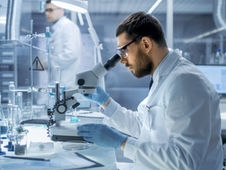WELCOME TO
EXPERTS IN CMT
Through Education and Awareness, Our Goal is to Improve the Lives of Those Who are Living with Charcot-Marie-Tooth Disease.
“
-- Kenneth Raymond
Founder, Experts in CMT
”


WHAT WE DO
The mission of Experts in CMT is to provide every person living with CMT and their loved ones with the tools and knowledge needed to become a champion self-advocate with managing their disease. We achieve this by accelerating Charcot-Marie-Tooth Disease awareness and advancing disease understandings in the patient and practicing healthcare professional communities via patient advocacy, patient and clinician education, and public engagement. Experts in CMT is a leader in up-to-date information regarding the latest developments in disease assessment and management, providing education and awareness opportunities not available elsewhere. With an emphasis on CMT genetics and CMT-related respiratory impairment, Experts in CMT provides consulting services in all aspects of CMT for both the patient and the practicing clinician.

CMT AND
BREATHING
CMT can cause breathing problems, and when it does, it causes a very specific kind of respiratory impairment called, “Neuromuscular-Induced Respiratory Muscle Weakness.” In CMT, this is referred to as CMT-induced neuromuscular respiratory muscle weakness, which can be shortened to “CMT-related respiratory muscle weakness.” Rather than affecting lung and airway tissues, this type of respiratory impairment is caused by a weakening of the muscles used for breathing. In CMT, the breathing muscles can become weakened as a consequence of the effects of the disease on the nerves that control these muscles. Just as the muscles of the lower legs, feet, and hands can become weakened in CMT, so to can the muscles used for breathing.

CMT GENETICS
DATABASE
EXPLORE THE
CMT-ASSOCIATED
GENES DATABASE
Experts in CMT boasts the only publicly searchable and fully inclusive CMT-associated genes and their related subtypes database. The database is free to use and is searchable by CMT Type, by gene, by inheritance pattern, by neuropathy type (demyelinating, axonal, intermediate), and by chromosome. There isn't another publicly available and searchable resource that is this thorough and complete.
Whether you're a CMTer, a practicing clinician, a research scientist, or just somebody who is wanting to learn more, the Experts in CMT database provides easy access to CMT information that is an otherwise daunting task to locate.
WHAT IS CMT?
Charcot-Marie-Tooth disease is a rare inheritable neuromuscular disease, but it is the world’s most commonly inherited neuromuscular disease. Commonly referred to as CMT, the chances of inheriting the disease and how the disease is inherited are both determined by the specific genetic mutation. Currently, there are 140 genes discovered to have CMT-causing mutations, plus an additional five chromosomal locations scientist suspect as having a CMT-causing mutation but the exact gene has not yet been identified.
CMT gets its name from the three physicians who first described it: Jean-Martin Charcot (1825-1893), Pierre Marie (1853-1940), and Howard Henry Tooth (1856-1925). CMT is typically referred to as a genetic neuromuscular disease, and CMT affects 1 in 2500 people, or about 0.04% of the world's population.

FUNNY NAME
SERIOUS DISEASE

TOP 10
CMT QUICK FACTS
-
Although a Rare Disease, CMT is the Most Common Inherited Neuropathy
-
To Date, 140 Genes Discovered to Have CMT-Causing Mutations
-
Affects 1 in 2,500 People
-
More Than 3 Million Patients World Wide
-
Affects All Ethnicities and Age Groups
-
Affects the Nerves that Control the Muscles, but the Muscles are not Directly Diseased
-
Progressive Over One's Lifetime
-
Is Not an Autoimmune Disease
-
Is Not Acquired and Is Not Contagious
-
Currently No Cure nor Direct Treatment













